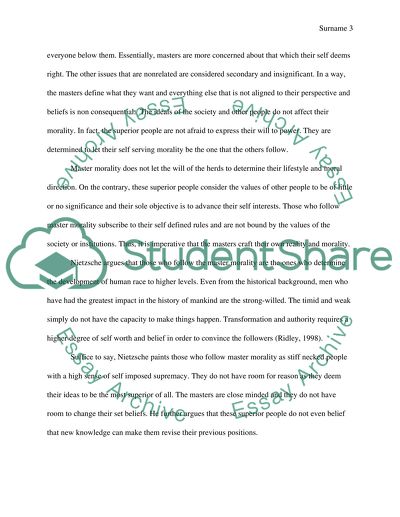Cite this document
(“Are Nietzsche's criticisms of morality convincing Essay”, n.d.)
Are Nietzsche's criticisms of morality convincing Essay. Retrieved from https://studentshare.org/philosophy/1463554-are-nietzscheyies-criticisms-of-morality
Are Nietzsche's criticisms of morality convincing Essay. Retrieved from https://studentshare.org/philosophy/1463554-are-nietzscheyies-criticisms-of-morality
(Are Nietzsche'S Criticisms of Morality Convincing Essay)
Are Nietzsche'S Criticisms of Morality Convincing Essay. https://studentshare.org/philosophy/1463554-are-nietzscheyies-criticisms-of-morality.
Are Nietzsche'S Criticisms of Morality Convincing Essay. https://studentshare.org/philosophy/1463554-are-nietzscheyies-criticisms-of-morality.
“Are Nietzsche'S Criticisms of Morality Convincing Essay”, n.d. https://studentshare.org/philosophy/1463554-are-nietzscheyies-criticisms-of-morality.


